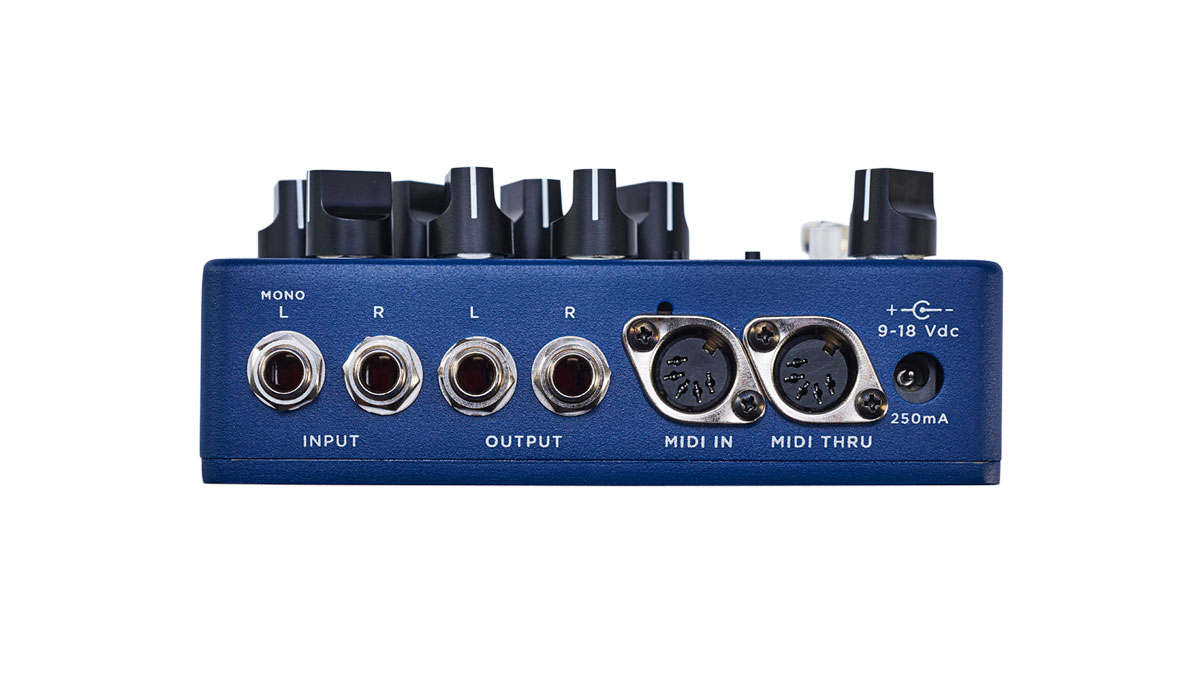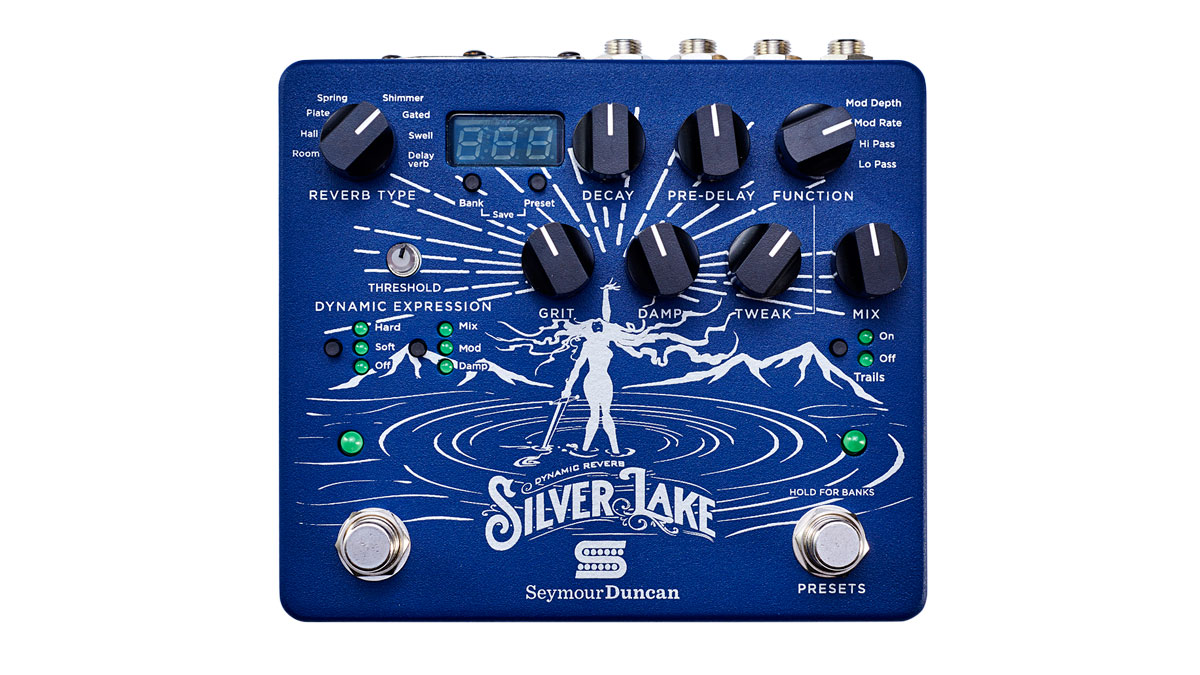MusicRadar Verdict
In its price range the Silver Lake comes up against some stiff competition but it has a feature set that should hold plenty of appeal.
Pros
- +
128 accessible memories.
- +
Dynamic Expression, modulation for all reverb.
- +
Grit knob for dirt.
- +
Trails function.
Cons
- -
No expression pedal facility.
MusicRadar's got your back
Any player looking for one of the larger do-everything reverb pedals is really spoilt for choice these days.
This means any company introducing a new model to an already crowded marketplace really needs to bring something new to the table, like Source Audio did by putting two simultaneous reverbs in their Ventris.
Seymour Duncan’s approach with the new Silver Lake Dynamic Reverb is to provide a set of reverbs that are controllable via playing dynamics. This proprietary Dynamic Expression control is not the be-all and end-all of the Silver Lake, though: it has eight selectable reverb types, with a host of editable parameters, and its 128 onboard memory slots make it a pretty formidable reverb powerhouse even without it.
In Use
The reverb types cover conventional Room, Hall, Plate and Spring sounds plus an angular gated reverb and one that swells in as your note fades. The ubiquitous Shimmer is here, with an adjustable amount of upper octave, plus there’s also a very nice combination of delay and reverb with adjustable delay time that’s capable of conjuring atmospheric ambiences.
Knobs to set the dry/wet reverb mix (up to 100 per cent wet if you want to use the pedal in an FX loop), reverb decay time and pre-delay are fairly standard but the Silver Lake also has a Grit knob that adds some soft clipping to the wet sound, altering the texture of the reverb tail. This can add a touch of overdriven valve sound or can get quite aggressively lo-fi. It works closely with a damping knob that subdues top-end frequencies for a darker/duller less-prominent reverb.
Further editing of the reverb tail is available via Hi and Low pass filters for rolling off the bottom to tighten up the response or severely restricting the frequency range for a particular tonal effect, for example. To keep the knob count on the pedal manageable these filters are adjusted by a single Tweak knob and selected via a four-way Function knob that also allows access to Modulation Depth and Rate to add anything from a mild chorus to a deeper pitch vibrato to the reverb.

The Dynamic Expression control allows you to select one of three specific reverb parameters (Mix, Modulation, Damp) that will respond to dynamics. You set a threshold to determine the strength of the effect and select one of two ways to make it work. In Hard mode playing harder blends in more of the chosen parameter but, if you choose Soft mode, softer playing will offer more of the effect, harder playing subduing it.
Want all the hottest music and gear news, reviews, deals, features and more, direct to your inbox? Sign up here.
In this mode you can ‘duck’ the reverb so it doesn’t get in the way when you are playing but comes in at the end of phrases, and it’s also cool for adding modulation to chords as they fade out. It’s the sort of effect that demands experimentation but is capable of adding a nuanced layer to your playing.
With so many parameter options and knobs, onstage WYSIWYG operation would be challenging, especially as the position of the Tweak knob is likely to be different for all of the four parameters if you choose to use them. Fortunately the Silver Lake is fully programmable and has 128 preset locations where you can store your sounds and return to them with you need them. There are 32 banks each with four presets that are instantly accessible onstage. A Preset footswitch scrolls through/selects the presets in the currently loaded bank while to change banks between songs a short press-and- hold enters Bank mode so you can scroll to the next bank you need.
Presets can also be directly called up via MIDI, while a USB connection allows access to free librarian software where you can manage your presets and download the periodic firmware updates that are planned to add features.
In its price range the Silver Lake comes up against some stiff competition but it has a feature set that should hold plenty of appeal, not least the 128 onboard memories allowing you to instantly store any sound that you’ve conjured up from turning knobs rather than delving into menus.
The real intrigue, though, comes from the Dynamic Expression and Grit functions: while it will do the conventional all day long, the Silver Lake will also let you get creative for a range of down and dirty altered reverbs with a tailored response to your playing.
Trevor Curwen has played guitar for several decades – he's also mimed it on the UK's Top of the Pops. Much of his working life, though, has been spent behind the mixing desk, during which time he has built up a solid collection of the guitars, amps and pedals needed to cover just about any studio session. He writes pedal reviews for Guitarist and has contributed to Total Guitar, MusicRadar and Future Music among others.

